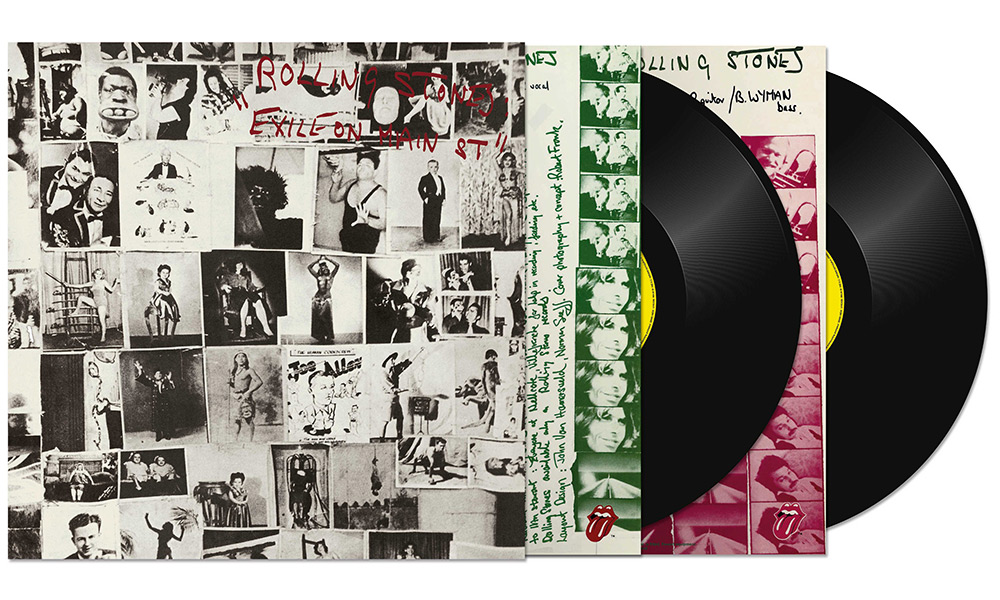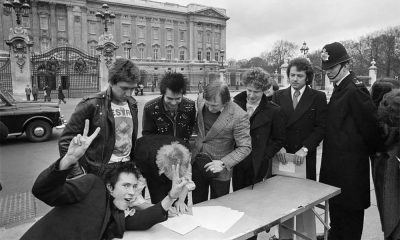News
‘Exile On Main Street’ 50 Years On


It’s the album that, for many disciples of the Rolling Stones, remains their defining hour. It’s a record of such enduring appeal that it topped the UK chart twice, 38 years apart, playing host to such favorites as “Rocks Off,” “Sweet Virginia,” “Shine A Light,” “Happy,” and “Tumbling Dice.” It could only be Exile On Main St.
The celebrated circumstances of the making of this storied double-album were so challenging, and its gestation so drawn-out, that few Stones diehards could have imagined how Exile would claim such an exalted place in their history. It took its name, with knowing irony, for the band’s own, enforced tax exile status from their own country. This started immediately after they finished a UK tour at London’s Roundhouse in March 1971.
-
How Well Do You Know Dire Straits’ ‘Brothers In Arms’?
-
How The Rolling Stones Set Up Their Secret Toronto Gigs Of 1977
-
‘I Want It All’: When A ‘Miracle’ Track Started Queen’s New Purple Patch
“You were very resentful about having to leave your own country, because that’s really what it came to,” said Keith Richards to this writer, in a Sunday Times feature at the time of the deluxe reissue of Exile in 2010. “Yeah, you could have stayed and made tuppence out of every pound,” he joked, of the punishing tax laws that forced the Stones to relocate. “Thanks a lot, pals.”
“It was the only thing to do,” added Charlie Watts. “What do they call it, a break in earnings? It worked out, thank goodness.” Both he and Bill Wyman settled in France. “My family were very happy there, and I was.”
The Stones began sessions for songs that finished on the album at Mick Jagger’s Stargroves estate as early as 1969. They continued at Olympic Studios in London. But Exile was chiefly recorded, with considerable difficulty, at Richards’ Nellcote villa in the south of France. The challenges were myriad, from sheer audiophonic limitations to endless delays caused by the Stones’ lifestyle of the time.
‘It was magical’
The sessions were captured in their celebrated and much-used Rolling Stones mobile truck, but only after certain modifications. Wyman, describing the villa in the Sunday Times piece, said: “It was very Mediterranean, and very beautiful, on top of this point with its own boat. When Keith rented it, the garden was very overgrown, so it was magical.
“It was fantastically exotic, with palm trees. We had to saw a couple of them down to get the truck [the Rolling Stones Mobile] in to record. We ran the cables down into various rooms that we tried sound in.”
“The basement was the strangest place,” Richards said in the same article. “It was large, but it was broken up into cubicles, it kind of looked like Hitler’s bunker. You could hear the drums playing, for instance, but it would take you a while to find Charlie’s cubicle.”
Mick Jagger, remembering the coterie that surrounded the Stones, added: “Everyone’s life was full of hangers-on. Some of them were great fun, they’re all good for a bit, but when you really come down to it, you don’t want them around, because they just delay everything.
‘It’s a rock‘n’roll environment’
“But that was the lifestyle then. It was just another way of living. There’s a lot of people with a lot more hangers-on now than we ever had. There was lots of drugs and drinking and carrying on. But you know, it’s not a factory. It’s not a mill in the north of England. It’s a rock’n’roll environment.”
But from such unpromising circumstances came a record that continued the Stones’ blinding run of form of the era. Released on May 12, 1972, it went to No.1 on both sides of the Atlantic — their sixth chart-topper in their own, temporarily estranged country —and in many other countries from Spain to Canada. It was certified platinum in the US by 2000, and the chart-topping deluxe reissue went platinum in the UK.
Lenny Kaye, reviewing Exile on its first release, admired its “tight focus on basic components of the Stones’ sound as we’ve always known it, knock-down rock and roll stemming from blues, backed with a pervading feeling of blackness that the Stones have seldom failed to handle well.”
‘The decadent air of the early 70s’
When it was reissued, media queued up to sing its praises. “Until they invent time travel, there’s no better way to inhale the decadent air of the early 70s,” wrote Q magazine. “Never bettered, this is the world’s greatest rock’n’roll band’s crowning triumph,” said Clash.
Listen to the best of the Rolling Stones on Apple Music and Spotify.
“I was always proud of it,” concluded Richards in the Sunday Times piece. “It showed the boys at their best, not just the music, which is obviously very important, but the way the band itself hunkered down and circled the wagons.”
Buy or stream the deluxe edition of Exile On Main St.

-
Paul McCartney And Wings To Release Historic Live Album ‘One Hand Clapping’
-
Elton John Earns Multi-Platinum Plaque For ‘Diamonds,’ Shares ‘Step Into Christmas’ EP
-
Jon Batiste Announces ‘Uneasy Tour: Purifying The Airwaves For The People’
-
Best Political Punk Songs: 20 Essential Anti-Establishment Tirades





